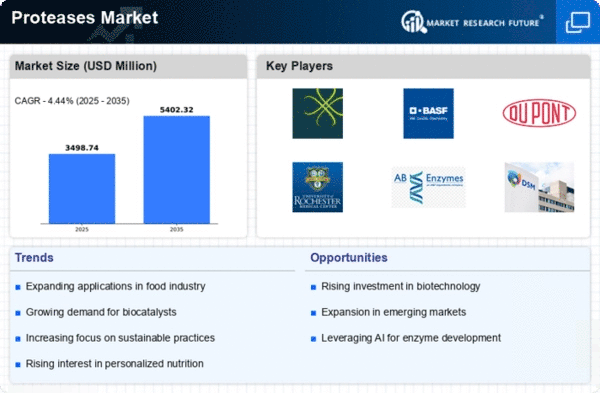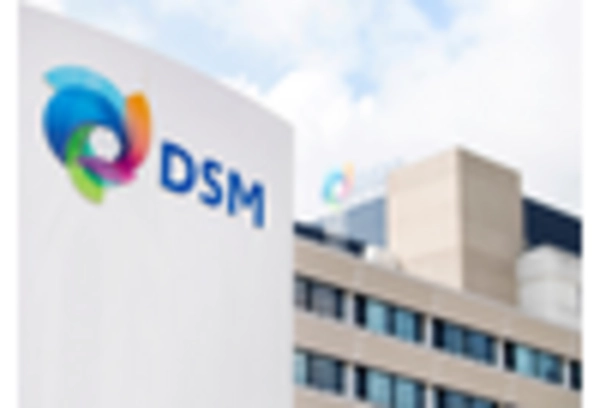Market Share
Proteases Market Share Analysis
The Proteases industry is one of the most important sections in biotechnology and healthcare that require effective market share positioning strategies to remain competitive and achieve sustainable growth. To capture a significant portion of the market’s share, companies operating in this sector use different strategic alternatives. Differentiation is one of the leading strategies employed by firms operating in Proteases industry. Firms intend to set themselves apart from other competitors through distinguishing attributes or advantages for their products or services. For example, it may stress how well their protease products function in particular applications such as food processing and pharmaceuticals. This method not only attracts customers looking for specific solutions but also establishes a derived value that distinguishes the company. In addition, cost leadership plays a crucial role in market share positioning strategy. Companies target consumers who are price-sensitive by becoming low-cost producers of proteases available within the market. Consequently, firms build up large scales via efficient production systems, bulk purchases or improved technology which allows them to offer competitive prices while ensuring profitability. This approach is especially successful when customers prioritize saving money over high-quality goods with lower prices. Product innovation is essential in Proteases field as it forces businesses towards conducting more research and development activities to produce outstanding products. By being ahead of technology changes, a company can come up with new protease formulations or production methods thereby becoming an industry leader through its innovative process. Thus, it increases its percentage on global pie chart and at the same time maintain loyalty among customers since organizations need advanced tools for achieving these objectives Moreover, strategic partnerships and alliances have tremendous influence on how companies position themselves within Proteases segment of biotech’s industry customer base across many regions; however little evidence has been found for developing countries where evidence is largely anecdotal. Often, businesses form agreements with academic institutions or other players from this sector so as to combine resources and capabilities that complement each other. Joint efforts may lead to new products, better technologies or expansion into new markets. By forming such strategic partnerships, companies could benefit from each other’s expertise hence creating a synergistic effect that would improve their overall market position. Geographical expansion is another important approach used by firms in the Proteases industry. Sometimes corporations intend to enter particular regions or nations that are projected as potential high growth areas by establishing either physical presence through subsidiaries and distribution networks or else engaging in partnership with local entities. This way, businesses become capable of capturing market share across different places and satisfying diverse customers’ demands since they adjust according to regional tastes, regulations and dynamics. Moreover, customer-centric strategies are very significant when it comes to market positioning for protease industries. Understanding what customers want makes it possible for businesses to shape their products accordingly. Equally, offering world class service to customers, giving personalized solutions as well as building strong relationships can play a part in retaining customer base and increasing its size thus enhancing its market share in the given environment.


















Leave a Comment